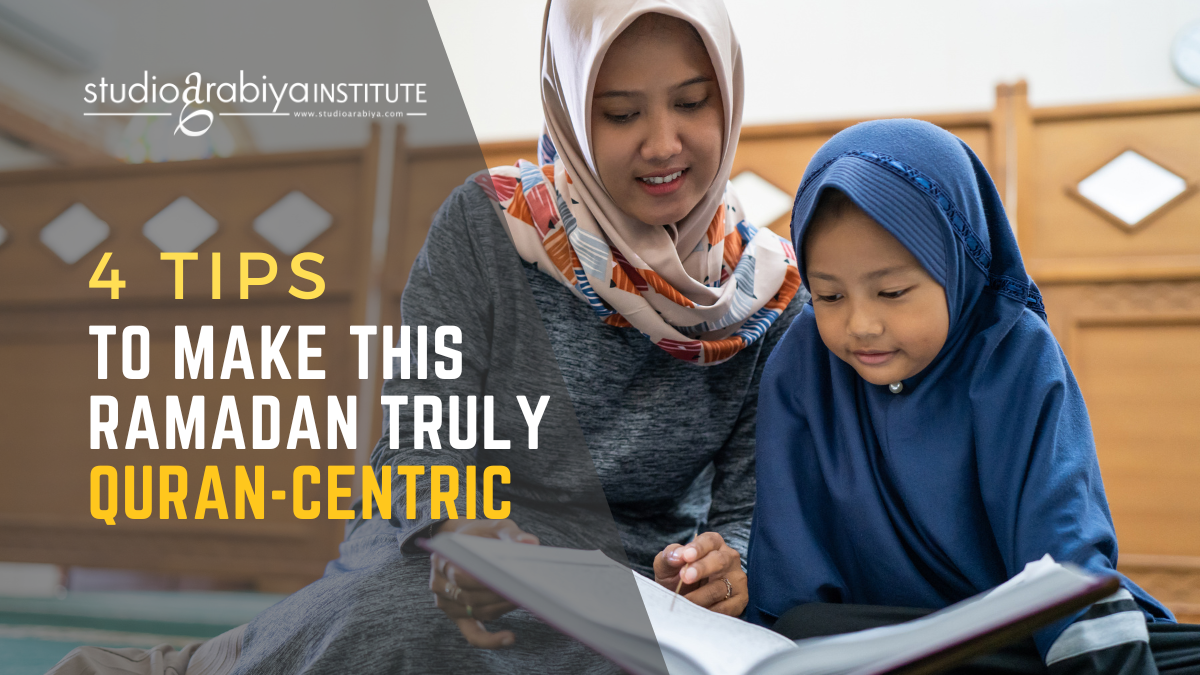We often call Ramadan “the month of fasting”, and of course, fasting is very important. It is one of the five pillars of Islam to fast during the month of Ramadan. However, Allah SWT says in the Quran:
“The month of Ramadhan [is that] in which was revealed the Quran, a guidance for the people and clear proofs of guidance and criterion.” (Surah Al-Baqarah, 2:185)
This is the only place in the Quran where the word “Ramadan” is used. Notice how Allah SWT is first talking about the Quran, and only later in the ayah is fasting mentioned. SubhanAllah, this is so powerful! The Quran should take a central place in our homes, all year long but especially during Ramadan. So, how can we do that? Here are 4 practical tips!
Tip #1: Pray together as a family, as often as you can.
The Quran is at the very center of Salah, therefore praying together is a great way to connect with the Quran as a family. Depending on everyone’s schedule, it might not be feasible to pray together for all five daily prayers, but during Ramadan, the Fajr, Maghrib and Ishaa’ prayers are usually times when everyone can be around.
Tip #2: Dedicate some time daily to the Quran only – for the whole family.
It doesn’t need to be long. Remember that it’s better to do something small but consistently rather than something big rarely. It could be just 30 or 15 minutes, but make sure that it is on everyone’s schedule and that everyone will be available at that time. You can then decide, as a family, what you want this special time to look like: it can be sitting in a circle and taking turns to recite, everyone in their room reading or reciting on their own.
Tip #3: Initiate a daily family halaqah (or weekly if that works better for your family).
A halaqah is a religious gathering for the study of the Quran or Islam in general. This is something that each family member could take turns leading, so that the responsibility of this learning time is shared. Topics can be decided ahead of time so that the leader has time to gather information and prepare. A halaqah does not need to be particularly long, the idea is just that everyone can walk away with something new they have learnt, or a new perspective on something. For instance, the halaqah could be a daily 15-minute open talk about an ayah from each Juz that will be recited that night at the mosque.
Tip #4: Launch a Quran challenge for Ramadan.
This, again, will look different for each family, depending on whether each member can read and recite the Quran or not. It could be a memorization challenge where everyone tries to memorize the same Surah or set of Suwar, a reading or recitation challenge where everyone tries to read or recite a certain number of pages each day, etc. Find what works for your family and include a prize to motivate everyone – but also make sure everyone understands that the true intention should be on pleasing Allah SWT; the prize is just an extra perk.



